Entertainment
What is Pride Month? Pride Month’s History Around the World
Published
4 years agoon
By
Kenta Fox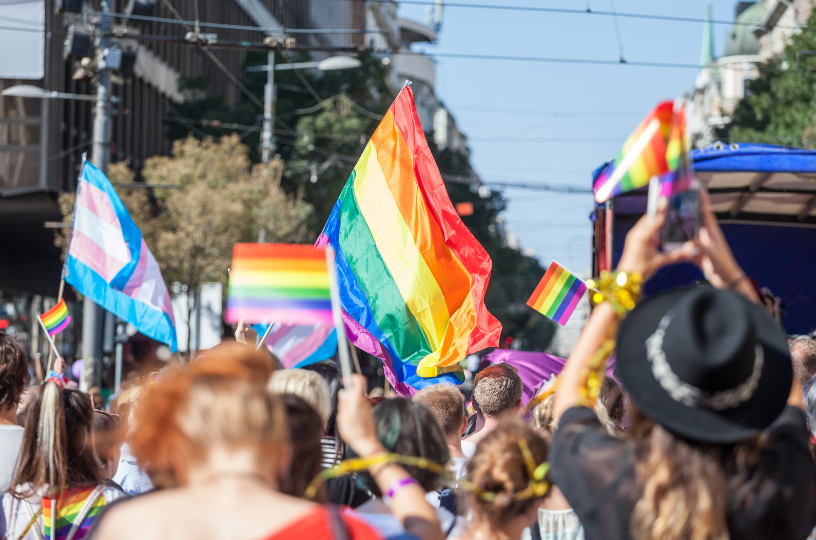
Pride Parade is a series of events and ceremonies with the participation of LGBTI individuals and those who support LGBTI individuals, which are celebrated around the world at the end of June every year and held on the anniversary of the Stonewall uprising. A series of events and parades are held to commemorate the Stonewall riots.
Story of the Pride Month
On June 28, 1969, the police raided the nightclub “Stonewall Inn” in New York, USA. The bosses, employees and guests of the nightclub started a resistance against this raid. Among those who came to enjoy the Stonewall Inn that night was Marsha Johnson, a transgender, black, and bisexual woman. Marsha was one of the activists who led the uprising to start and continue for several days. A year after this uprising, on June 28, 1970, the first Pride Parade, as it is used today, was held in New York, led by bisexual activist Brenda Howard. Simultaneously with New York, people held celebrations in Los Angeles and San Francisco.
Representing LGBTIQ+ individuals and their rights, The flag with rainbow colors used in marches and celebrations was designed by American Artist Gilbert Baker in 1978 . Each of the eight colors on the flag reflects the symbolic feelings the artist has observed in the LGBTIQ+ community.

Pink, sexy; red, life; orange, healing; yellow, sunlight; green, nature; turquoise, art; Blue symbolizes peace and purple symbolizes the soul. The flag was first used that year at the Pride Parade in San Francisco. The Pride Parade and Pride Month were first officially recognized by then-US President Bill Clinton in 1999 . Stonewall Inn, which was closed shortly after the events, was repaired and reopened in 2007. US President Barrack Obama, who took office in 2009, recognized June as Pride Month during his term from 2009 to 2016 .
Also in 2016, He included the Stonewall Inn, the site of the uprising, in the status of a national monument. From June 1968 until today, celebrations and marches continue to be organized in many countries of the world in June. The word of honor given to these celebrations emphasizes the personal dignity of individuals and that sexual orientation is nothing to be ashamed of or concealed.
Who Does LGBTIQ+ Represent?
Pride Month is the month where LGBTIQ+ individuals come together against the problems they experience, the difficulties they face and the problems caused by marginalization. Each letter of this abbreviation represents different orientations. It consists of the initials of the words lesbian, gay, bisexual, transgender, intersex person, queer (pronounced “queer”).
Lesbian: Represents gay women.
Gay (gay): Represents gay men.
Bisexual: Represents individuals whose sexual orientation is against both men and women.
Transgender person: Represents individuals who do not feel like they belong to the gender they were born with.
Intersex individual 1 : Individuals who do not meet any gender definition and have different anatomical sex characteristics (chromosomes, glands, genitals and/or reproductive organs) from the common one.
Queer : While it was used as an insult in the beginning, it is now preferred by people who state that they are gay.
The “+” symbol at the end of the abbreviation covers other orientations.
In the most general sense, the demands of LGBTIQ+ individuals are the recognition of their human rights. LGBTIQ+ communities coming together from different parts of the world organize events, marches and celebrations during Pride Month. They commemorate the Stonewall Inn riots, their loved ones lost due to hate crimes, and their relatives lost to AIDS caused by HIV. Although the LGBTIQ+ community is a community that has existed for a very long time, it was able to show its first major reactions to police raids, persecution and insults in New York in 1969. Pride Parades, which started in America where LGBTIQ+ communities came together, spread to Western Europe and then to Eastern Europe.
Pride Month and It’s History in European Countries
Artifacts written by men for each other were found in the ruins of the Ancient Greek period, where homosexual relations were freely practiced. These works were met with astonishment by the Romans. The associations of homosexuality with too much sex and nudity in the works they read were condemned by the Romans. From the Middle Ages to the modern age, homosexuality was punished by law for religious, political and social reasons and was considered a crime. For Catholics, the penalty for homosexual intercourse is death. In the period until the French Revolution, stigmatization, exclusion from society and punishment continued. With the French Revolution of 1791, homosexual relations were decriminalized from French laws . Italy, one of the countries that followed France, in 1890, Poland decriminalized homosexuality in 1932 and Denmark in 1933.
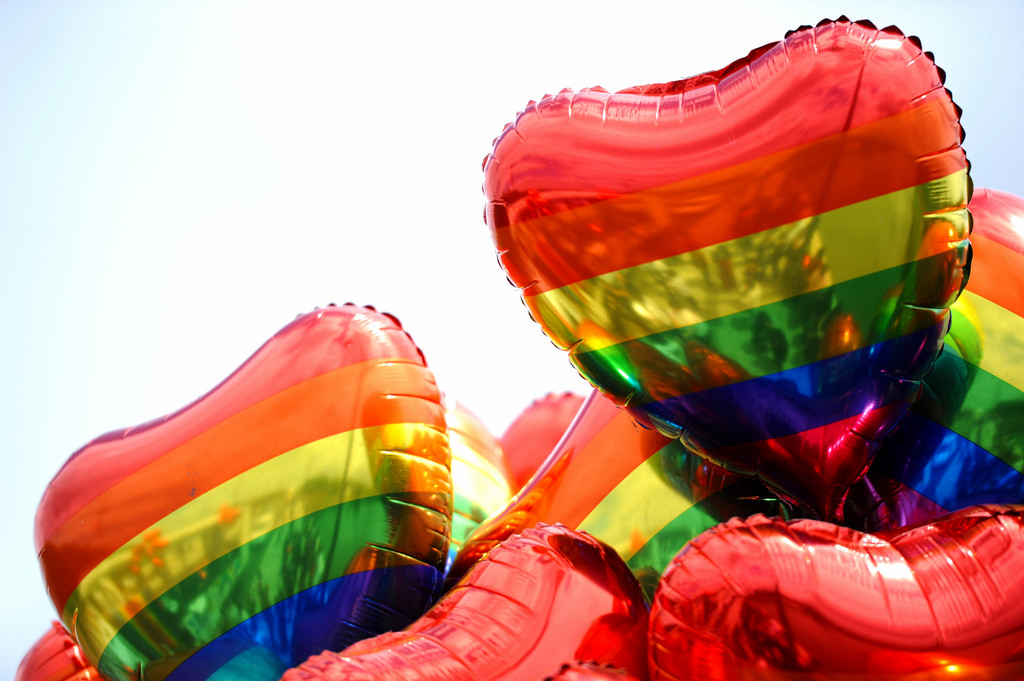
An important development took place in Germany. Dr., a psychiatrist in Germany, who has a law that punishes male homosexuals with imprisonment. Magnus Hirschfeld collected some 6,000 signatures to repeal this law. Similarly, women tried to prevent the punishment of homosexuals. Dr. Magnus, a psychiatrist like himself, Dr. He co-founded the Institute for Sex Studies with Arthur Kronfeld. One of the most well-known topics that the institute dealt with was the process of the first successful gender reassignment surgery. Similarly, women tried to prevent the punishment of homosexuals. Dr. Magnus, a psychiatrist like himself, Dr. He co-founded the Institute for Sex Studies with Arthur Kronfeld .
One of the most well-known topics that the institute dealt with was the process of the first successful gender reassignment surgery.
Similarly, women tried to prevent the punishment of homosexuals. Dr. Magnus, a psychiatrist like himself, Dr. He co-founded the Institute for Sex Studies with Arthur Kronfeld. One of the most well-known topics that the institute dealt with was the process of the first successful gender reassignment surgery. The Sex Research Institute, which continues to work in areas such as decriminalizing homosexuality, individual freedom, and sexual orientation, was stopped with the Second World War. In Nazi-era Germany, homosexuals became one of the discriminated groups. They were taken to concentration camps, subjected to torture, killed. On the other hand, Iceland in 1940; Switzerland in 1942; In 1944, Sweden decriminalized homosexuality. With the end of the war, the mobility of LGBTIQ+ groups started slowly.
At clubs, outings, and at conferences, gays came together and continued to advocate for equality. In 1951, the International Committee for Sexual Equality was established in Amsterdam. The committee organized events to improve the equal rights that gays and lesbians should have. He also demanded that the United Nations include homosexual rights in the Declaration of Human Rights. The committee in Amsterdam received support from many European countries. With the uprising in America in 1969, LGBTIQ+ groups started to take action around the world. Pride Marches were also held in many European countries, especially in London, Berlin and Paris. In 1993, the World Health Organization removed homosexuality from the category of psychological disorders. He acknowledged that it is a sexual orientation, not a disease that needs to be treated. In the 21st century, LGBTIQ+ rights have become more universal.
They had legal rights such as marriage within the scope of civil rights in about 18 countries in Europe. Against these countries, Poland, which is also a European country, shows an attitude that does not recognize LGBTIQ+ groups and strongly opposes them.
Entertainment
Top 5 Wedding Photographers in the Netherlands (2026 Guide)
Published
4 weeks agoon
18/01/2026By
Berry Fox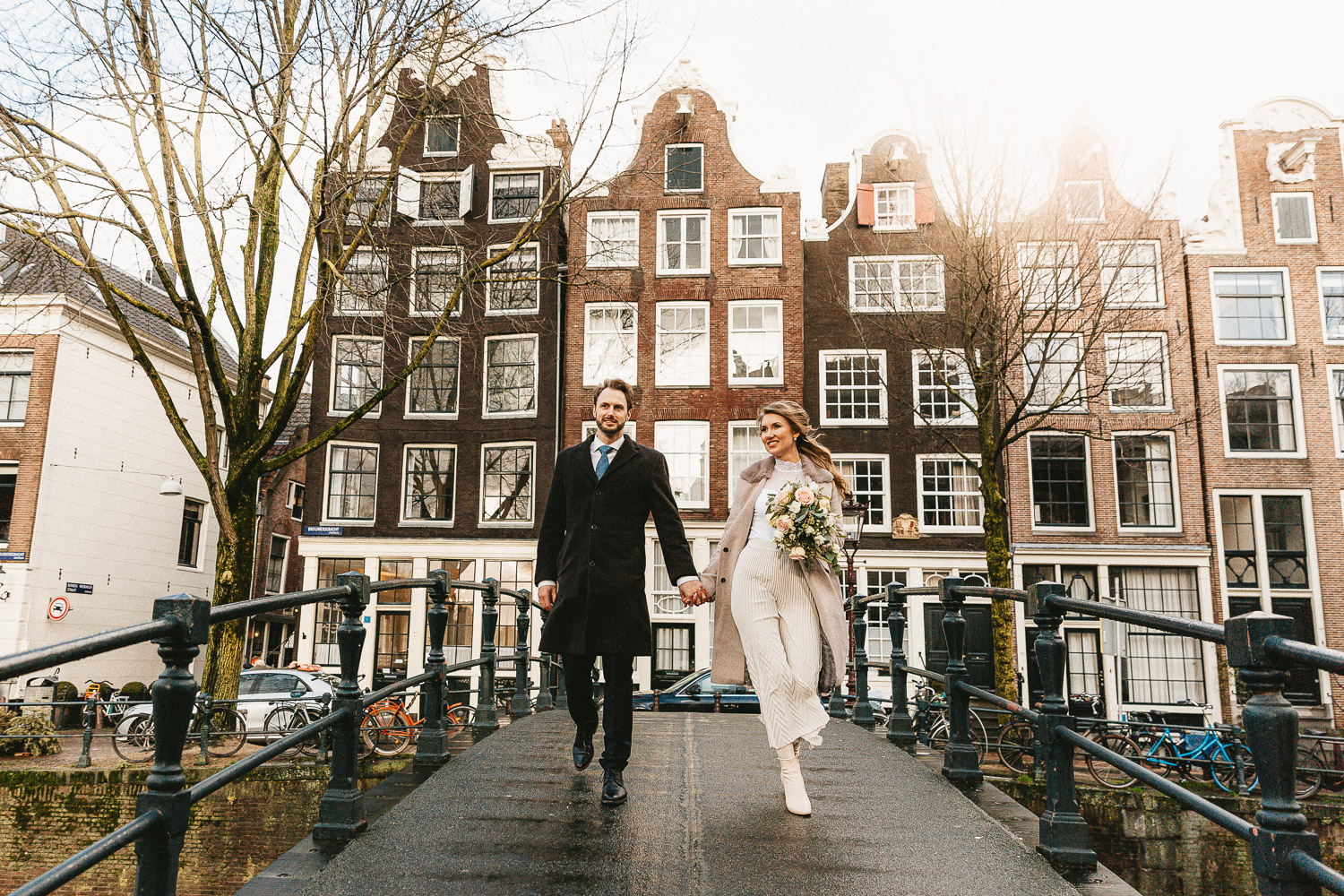
Top 5 Wedding Photographers in the Netherlands. Planning a wedding in the Netherlands or beyond? One of the most important decisions you’ll make is choosing the right photographer — someone who can beautifully capture the emotion, story, and uniqueness of your special day. Below are five of the most respected wedding photographers working in the Netherlands today, known for their styles, creativity and consistent excellence.
1. Berrin Ozkayali — Amsterdam & Destination Weddings
Berrin Özkayalı is a sought-after wedding photographer based in Amsterdam, known for her emotive storytelling and natural, documentary-style photography. With packages that focus on capturing authentic moments throughout a wedding day — from intimate details to joyful celebrations — Berrin brings a relaxed yet highly skilled approach to every couple’s story. Her work appeals to clients who want timeless, emotional images that they’ll treasure forever.
✨ Specialties: documentary wedding photography, genuine couple moments, destination weddings (France, Italy, Turkey, etc.)
Based in Amsterdam, Netherlands
Website: https://berrinozkayali.com/
2. Tom Tomeij — Award-Winning Photographer
Tom Tomeij consistently ranks among the top wedding photographers in the Netherlands, earning multiple awards at the Masters of Wedding Photography competition and other prestigious industry events. His style blends documentary storytelling with artistic framing to create images that are dynamic, emotional, and timeless. Couples often praise his professionalism and creative eye.
✨ Known for: international award recognition, emotional storytelling
Based in the Netherlands
Website: https://www.tomtomeij.nl/
3. Gabriel Scharis — Amsterdam Creative Storyteller
Gabriel Scharis is highlighted on respected global wedding photography lists for his ability to capture weddings with both authenticity and style. Based in Amsterdam, his work focuses on telling a complete narrative of the wedding day — from candid moments to beautifully composed portraits — often with a fine art sensibility.
✨ Best for: artistic, story-driven wedding photography
Amsterdam, Netherlands
Instagram: www.instagram.com/weddingstudios.nl/
4. Daan Fortuin — Natural & Emotional Imagery
Daan Fortuin’s work stands out for capturing heartfelt, spontaneous moments with creative attention to light and emotion. Featured in top lists of wedding photographers in the Netherlands, his images reflect both the joy and intimacy of real weddings, making him a favorite for couples who want natural, expressive photos.
✨ Recognized for: candid photography, warm emotional style
Netherlands
Website: https://daanfortuin.nl/
5. Paulina Sliwka — Elopement & Destination Specialist
Paulina Sliwka is a talented wedding and elopement photographer who brings a fresh, artistic perspective to every wedding she documents. While based in the Netherlands, she’s available internationally and is known for capturing adventurous destination weddings and intimate ceremonies with a bold, beautiful visual style.
✨ Great choice for: elopements, destination weddings, adventurous couples
Netherlands & worldwide
Website: https://paulinasliwka.com/
Choosing the Right Photographer
When selecting your wedding photographer, consider:
-
Style: documentary, fine art, editorial, classic?
-
Coverage: full day, partial day, engagement sessions?
-
Personality: someone who makes you feel comfortable and confident
-
Experience: with your venue type & wedding size
All of the photographers above bring strong portfolios, distinct creative perspectives, and a commitment to capturing real moments beautifully.
Entertainment
5 intimate wedding venues in the Netherlands
Published
1 month agoon
01/01/2026By
Berry Fox
5 intimate wedding venues in the Netherlands. There are countless options when it comes to the wedding venue, but first you have to decide: Will you use all your strength with at least 250 guests or will you keep your invitation smaller and more intimate?
If you choose the latter, it’s important to find a place that fits this small group perfectly. After all, nothing could be worse than a very large place for very few people, right?
Intimate wedding? These 5 wedding venues are suitable for small groups.
5 intimate wedding venues in the Netherlands
1.Hazelhof
A ceremony under the hazelnut trees, toast with cake in the old garden, dinner in the garden or a drink in the orchard. It’s all possible at De Hazelhof. The place is owned by two gentlemen who love gardening, so the setting always looks sophisticated.
Address: Hazeldonksestraat 14, 4891 PT Rijsbergen
Website: http://www.dehazelhof.nl/
Bu gönderiyi Instagram’da gör
Destination wedding and elopement (@silviafalcomerphotography)’in paylaştığı bir gönderi
Advertisement
2. Koetshuis Waterland Velsen-Zuid
Koetshuis Waterland is an intimate wedding venue close to Amsterdam. The interior of this monumental building, with its modern-classic mix, is as unique as its location. Also nice for accommodation: the renovated Koetshuis can accommodate 16 guests.
Address: Rijksweg 112, 1981 LD Velsen-Zuid
Website: http://www.koetshuiswaterland.com/
Bu gönderiyi Instagram’da gör
Koetshuis Waterland (@koetshuis.waterland)’in paylaştığı bir gönderi
Advertisement
3. Museum Bussemakerhuis Borne
According to ThePerfectWedding, the most romantic municipality of Overijssel is in Bussemakerhuis in Borne. Now you can say yes to this monumental building that was used for the linen trade. This place gets even more romantic because the entire orchard in the museum’s backyard is yours at the wedding. Ideal for a summer wedding with a small group.
Address: Ennekerdijk 11, 7622 ED Borne
Website: http://www.museumbussemakerhuis.nl/
Bu gönderiyi Instagram’da gör
Museum Bussemakerhuis (@museumbussemakerhuis)’in paylaştığı bir gönderi
Advertisement
4. Wintertuin Experience Baarn
Another wedding venue where you can imagine yourself in Italy or France for a while: the Winter Garden in Baarn. This venue, which has an intimate atmosphere thanks to palm trees and rattan chairs, is also suitable for a wedding with a bohemian touch.
Address: Heemskerklaan 25 Ingang via Park, Abel Tasmanlaan 2, 3742 AK Baarn
Website: https://wintertuinexperience.nl/
Bu gönderiyi Instagram’da gör
Wintertuinexperience (@wintertuinexperience)’in paylaştığı bir gönderi
Advertisement
5. In de Kas Winssen
Looking for a unique place for an intimate wedding? Then you are at the right place in In de Kas. Ceremony and then dinner under the stars between grapes and hops and a huge garden full of lush vegetation, wooden details and fruit? Then this place is for you!
Address: Plakstraat 8A, 6645 KL Winssen
Website: http://indekas.nl/
Bu gönderiyi Instagram’da gör
In De Kas, beleef buiten (@indekas.beleefbuiten)’in paylaştığı bir gönderi
Advertisement
BONUS: You have decided on your wedding venue. Now it’s time to choose your wedding photographer? Then check out Berrin Ozkayali Wedding Photographer in the Netherlands:
Website: https://berrinozkayali.com/
Bu gönderiyi Instagram’da gör
Berrin Ozkayali | Wedding Photographer NL (@berrin.ozkayali)’in paylaştığı bir gönderi
DISCOUNT: Indicate that you are coming with Amsterdam Fox reference and get 10 percent discount on all packages.
Wish you a lovely day!
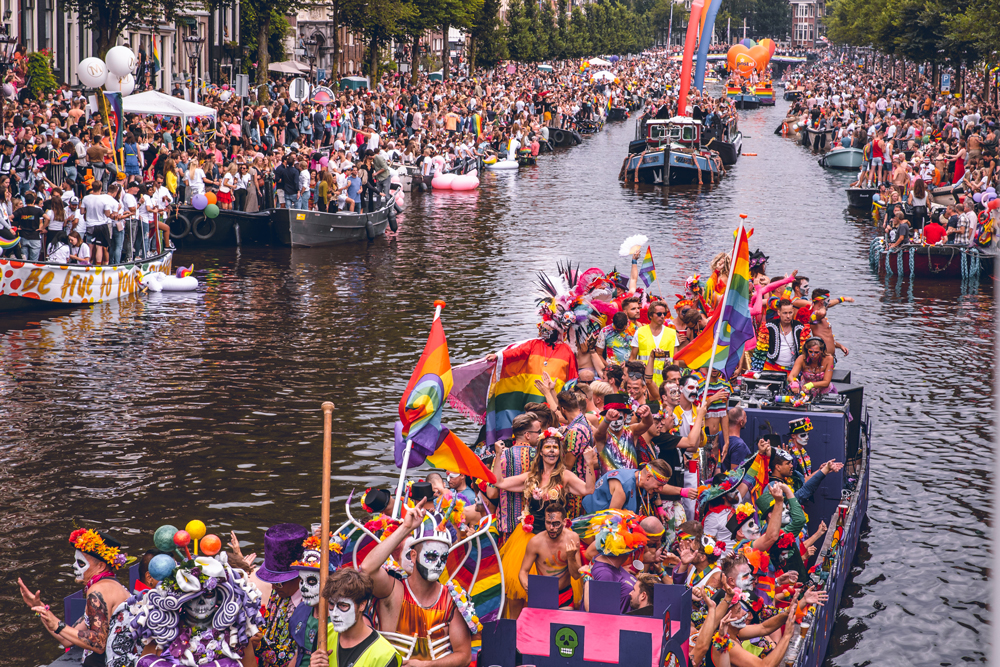
Pride 2023 in Rotterdam promises to be an extraordinary celebration of the LGBTQ+ community and its allies. With a lineup of exciting events and activities, this festival will create an inclusive and joyous atmosphere that will leave a lasting impact on attendees.
We’ll explore what makes Pride 2023 in Rotterdam;
Embracing Diversity Pride 2023 in Rotterdam is all about embracing diversity in its truest sense. The festival brings together people from different backgrounds, identities, and orientations, fostering a sense of unity and understanding. Rotterdam has always been a city that welcomes and accepts individuals from all walks of life, and during Pride, this spirit is magnified. It’s a time to celebrate the unique beauty of every person and to recognize the importance of inclusivity in creating a harmonious society.
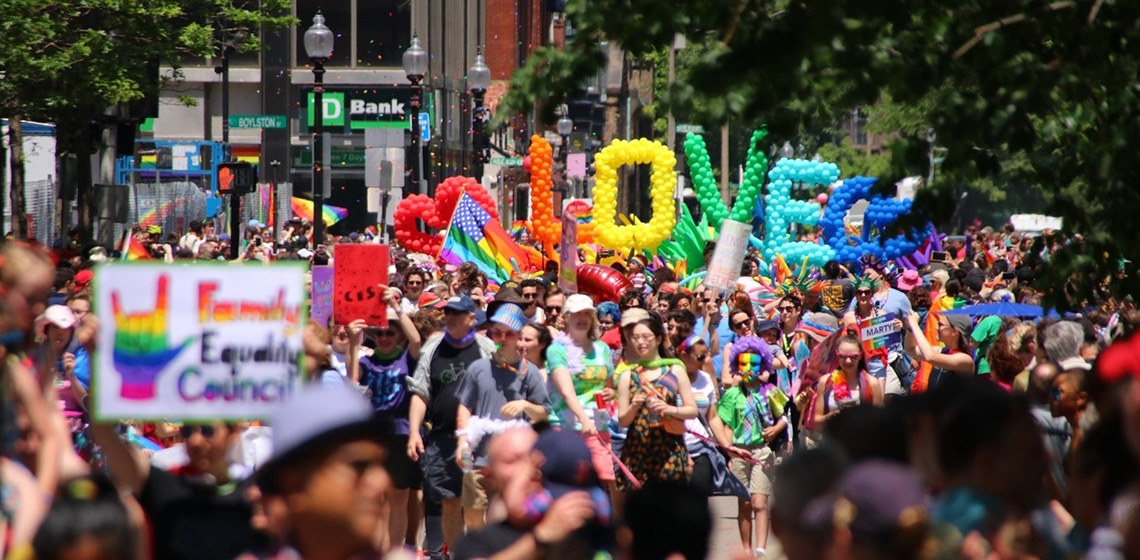
A Vibrant Lineup of Events Pride 2023 in Rotterdam will feature a vibrant lineup of events that cater to various interests and age groups. From the colorful parade that winds its way through the city streets to exciting dance parties that light up the nights, there’s something for everyone to enjoy. The festival also includes workshops, film screenings, art exhibitions, and panel discussions that address relevant LGBTQ+ topics. These events offer opportunities for education, engagement, and celebration, creating a well-rounded experience for all attendees.
The Pride Parade: A Symbol of Unity At the heart of Pride 2023 in Rotterdam is the Pride Parade, a magnificent spectacle that celebrates love and unity. The parade showcases vibrant floats, colorful costumes, and exuberant performances by LGBTQ+ groups and allies. As the procession moves through the city, the streets come alive with cheers and support from onlookers, creating an atmosphere of love and acceptance. The Pride Parade is not only a celebration of LGBTQ+ pride but also a powerful statement of unity and progress.
Safe and Welcoming Environment Rotterdam takes great pride in creating a safe and welcoming environment for everyone during the festival. Security measures are in place to ensure that attendees can fully enjoy the festivities without worry. The city’s commitment to safety and inclusivity makes Pride 2023 a must-visit event for LGBTQ+ travelers and allies alike.
Connecting with the Community Pride 2023 in Rotterdam provides a unique opportunity to connect with the LGBTQ+ community and its supporters. Whether you identify as LGBTQ+ or are an ally, the festival offers a chance to make new friends, share experiences, and celebrate the power of love and acceptance. The sense of belonging and camaraderie experienced during Pride can be transformative and create lasting memories.
Entertainment
Finding a Hotel for Pride 2023 in Amsterdam
Published
3 years agoon
23/07/2023By
Kenta Fox
Amsterdam Pride is one of the most anticipated and colorful events of the year, attracting LGBTQ+ travelers and allies from all corners of the world.
As you prepare for an unforgettable experience during Pride 2023 in Amsterdam, finding the right hotel is crucial to ensuring a comfortable and enjoyable stay.
1. Book Early, Secure Your Spot Amsterdam Pride is an incredibly popular event, and hotels in and around the city tend to fill up quickly. To secure the best accommodations at reasonable rates, it’s essential to book your hotel as early as possible. Keep an eye on the official Pride website and other event-related platforms for announcements and special deals on accommodations.
2. Choose the Right Location Amsterdam offers a diverse range of neighborhoods, each with its unique charm and atmosphere. For the most convenient and immersive experience during Pride 2023, consider staying in areas that are close to the event venues and parade route. The city center and the Le Marais neighborhood (also known as the Gay Village) are popular choices for LGBTQ+ travelers, as they are in close proximity to major Pride events and gay-friendly establishments.
3. Gay-Friendly Hotels: Embrace Inclusivity For an extra-special Pride experience, opt for a gay-friendly hotel that actively supports and welcomes LGBTQ+ guests. These hotels often go the extra mile to create a warm and accepting environment, allowing you to feel comfortable and free to be yourself during your stay. Look for hotels with LGBTQ+ symbols or statements of inclusivity on their websites.
4. Budget Considerations Amsterdam offers a wide range of accommodations, catering to various budgets. Before making your reservation, set a budget for your stay and explore options that align with it. Keep in mind that prices for hotels during Pride might be higher than usual due to the high demand. If you’re looking to save some money, consider staying slightly further from the city center or sharing a room with friends.
5. Amenities and Facilities Think about the amenities and facilities that are important to you during your stay. Some hotels offer on-site restaurants, bars, gyms, or wellness facilities, which can enhance your overall experience. Additionally, consider the type of room you prefer – whether it’s a standard room, a suite, or a shared dormitory for a more budget-friendly option.
6. Read Reviews and Ratings Before finalizing your hotel choice, read reviews and ratings from previous guests. Websites like TripAdvisor, Booking.com, and Google Reviews can provide valuable insights into the quality of service, cleanliness, and overall guest experience. Pay attention to feedback from LGBTQ+ travelers, as they may highlight specific aspects that are important to you as well.
7. Inquire about Pride-Related Events Some hotels may organize special Pride-themed events or parties for their guests during the festival. Don’t hesitate to inquire with the hotel’s staff about any planned activities or gatherings. This can be a great way to connect with fellow Pride-goers and add an extra layer of enjoyment to your stay.
8. Be Mindful of Cancellation Policies While it’s essential to book early, be mindful of the hotel’s cancellation policy. Life can be unpredictable, and you may need to adjust your plans closer to the event date. Choose a hotel with a flexible cancellation policy, so you have the option to make changes if necessary.
Good luck!
AMSTERDAMFOX.com
Entertainment
Amsterdam Pride 2023 Guide: Celebrate Love!
Published
3 years agoon
23/07/2023By
Kenta Fox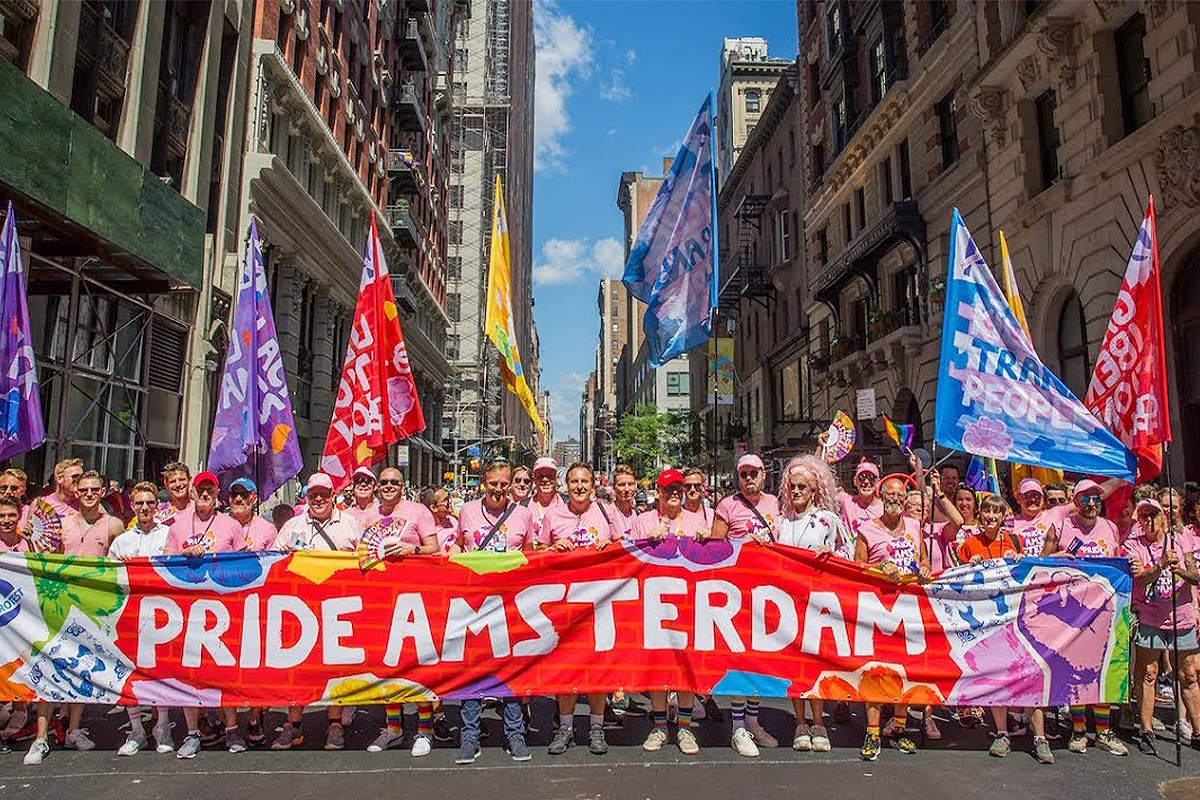
Events in the Netherlands, celebrating the LGBTQ+ community and promoting equality, diversity, and inclusion. This annual extravaganza attracts visitors from all over the world to join in the vibrant celebrations.
In this guide, we’ll provide you with all the essential information to make the most of Amsterdam Pride 2023.
Dates and Events
Amsterdam Pride 2023 will take place from July 29th to August 6th. During this week-long festival, the city will host a range of exciting events that cater to different interests and ages. Some of the highlights include:
1. Pride Walk
Date: July 29th The Pride Walk is a powerful and inspiring march where people come together to raise awareness for LGBTQ+ rights and equality. Participants walk through the heart of Amsterdam, showcasing solidarity and support for the community.
2. Canal Parade
Date: August 5th The iconic Canal Parade is the centerpiece of Amsterdam Pride. This world-famous event features elaborately decorated boats sailing along the picturesque canals of Amsterdam. It’s a dazzling spectacle that embraces love, diversity, and creativity.
3. Street Parties
Throughout the festival, various gay-friendly neighborhoods in Amsterdam, such as Reguliersdwarsstraat and the Jordaan district, host lively street parties. Dance to infectious beats, make new friends, and immerse yourself in the festive spirit of Amsterdam.
4. Club Events
Amsterdam’s nightlife comes alive during Pride, with clubs and bars hosting special LGBTQ+ themed parties. Dance until dawn and experience the vibrant energy of the city’s party scene.
Accommodation
Amsterdam offers a wide range of accommodations to suit every budget and preference. Since Amsterdam Pride attracts a large number of visitors, it’s essential to book your accommodation well in advance. Consider staying in gay-friendly hotels located close to the city center or the festival events. Some popular options include:
1. The Rainbow Hotel
A luxurious 5-star hotel in the heart of Amsterdam, known for its exceptional service and welcoming atmosphere.
2. Queer Haven Boutique Hotel
An intimate and stylish boutique hotel situated in the LGBTQ+ friendly neighborhood of Le Marais.
3. Green Globe Getaway
For eco-conscious travelers, this environmentally friendly hotel offers a tranquil retreat in the bustling city.
Tips for a Memorable Experience
- Plan Ahead: Review the event schedule and plan which activities you want to participate in during Amsterdam Pride.
- Stay Safe: Enjoy the celebrations responsibly and be mindful of your belongings in crowded areas.
- Respect the Locals: Remember that Amsterdam is a diverse and inclusive city, but it’s essential to respect the local customs and traditions.
Conclusion
Entertainment
A Journey into the World of Amsterdam Weed
Published
3 years agoon
24/06/2023By
Berry Fox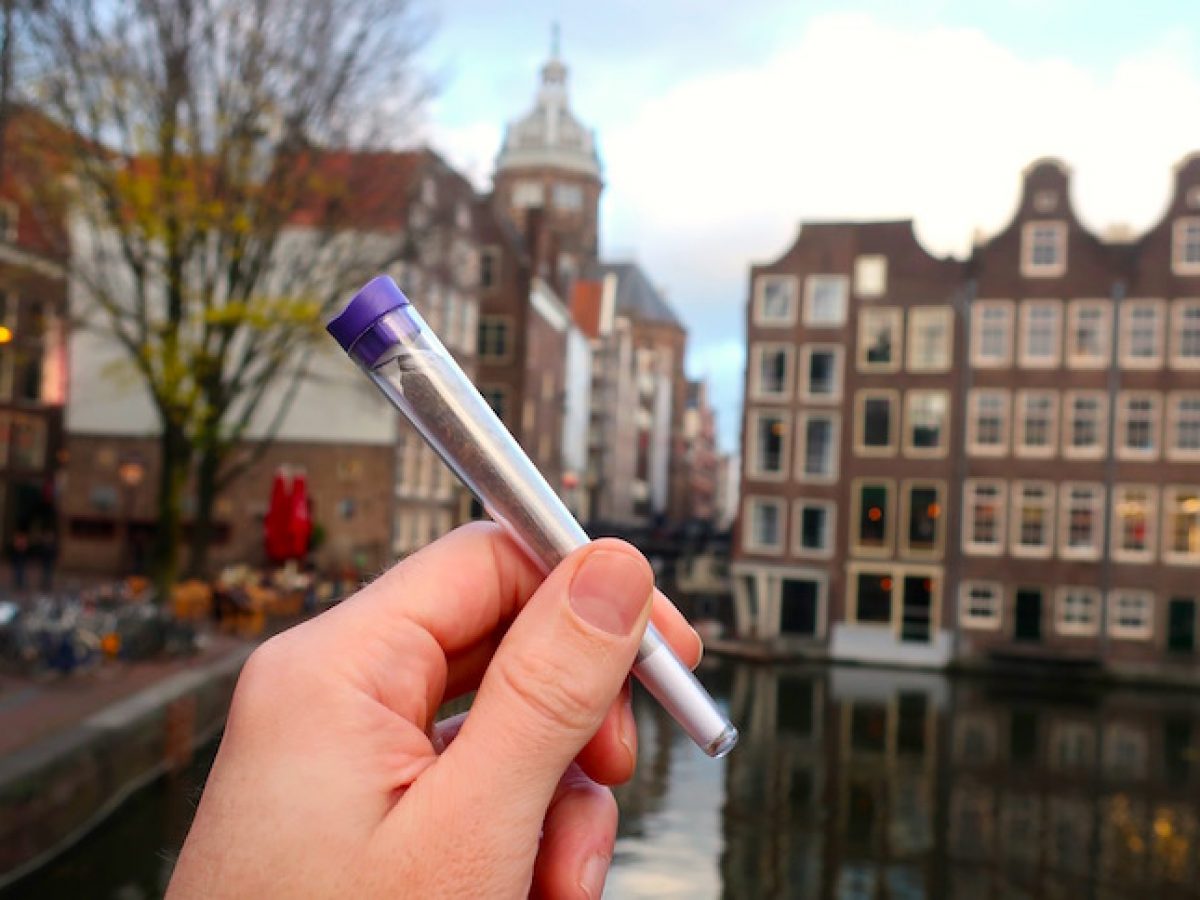
Amsterdam, the capital city of the Netherlands, is famous for its liberal policies on cannabis consumption. For many tourists, the allure of Amsterdam goes beyond its picturesque canals and historic architecture; it’s the opportunity to indulge in the city’s renowned cannabis culture. In this article, we will delve into the fascinating world of Amsterdam weed, exploring its history, regulations, popular strains, and the unique experiences it offers to visitors.
A Brief History:
The Netherlands has long been known for its progressive stance on cannabis. In the 1970s, the Dutch government adopted a pragmatic approach, distinguishing between softs (cannabis) and hards (such as cocaine and heroin). This led to the establishment of “coffee shops” where adults could legally purchase and consume small quantities of cannabis. Amsterdam quickly became a haven for cannabis enthusiasts from around the world, attracting both locals and tourists alike.
The Coffeeshop Experience:
One of the defining features of Amsterdam’s cannabis culture is the presence of “coffeeshops.” These establishments, which are not to be confused with traditional cafés, offer a unique social space where patrons can relax, socialize, and enjoy various strains of cannabis. Coffeeshops typically have a laid-back atmosphere, with comfortable seating, dim lighting, and a diverse clientele. They provide a safe and controlled environment for the purchase and consumption of cannabis products.

Wide Variety of Cannabis Strains:
Amsterdam is known for its exceptional quality and variety of cannabis strains. Coffeeshops offer an extensive menu featuring different types of weed, each with its own distinct flavor profile, aroma, and effects. Whether you prefer the uplifting and energetic Sativa strains or the relaxing and calming Indica varieties, there is something for every cannabis connoisseur in Amsterdam. Some popular strains include Amnesia Haze, White Widow, and Northern Lights.
Quality and Safety:
One of the advantages of purchasing cannabis in Amsterdam is the emphasis placed on quality and safety. Coffeeshops source their products from licensed growers who adhere to strict regulations regarding cultivation and production. This ensures that the weed you purchase in Amsterdam is of high quality and free from harmful additives. Additionally, coffeeshop staff are knowledgeable and can provide guidance to help customers choose the right strain based on their preferences and desired effects.
Beyond Cannabis:
While Amsterdam’s cannabis culture is undoubtedly a major attraction, the city has much more to offer. Visitors can explore the rich history and cultural heritage by visiting world-class museums like the Van Gogh Museum and the Rijksmuseum. The charming canal system provides the perfect backdrop for leisurely walks or bike rides. The city’s vibrant nightlife, diverse culinary scene, and numerous events and festivals ensure there is something for everyone.
Responsible Consumption:
It is important to note that while cannabis consumption is tolerated in designated spaces like coffeeshops, it is still subject to certain regulations. Visitors should be aware of the legal restrictions and consume responsibly. It is illegal to smoke cannabis in public places, such as parks or on the streets. Additionally, it is advisable to start with small doses, especially if you are not an experienced user, and to be mindful of the potential effects on your mental and physical well-being.
Amsterdam’s cannabis culture continues to be a major draw for tourists seeking a unique and open-minded experience. The city’s coffeeshops offer a safe and welcoming environment for individuals to explore and enjoy a wide variety of high-quality cannabis strains. However, it is essential to approach cannabis consumption responsibly, respecting both the local regulations and your personal limits. So, if you find yourself in Amsterdam, take a journey into the world of Amsterdam weed and discover a cultural phenomenon that has shaped the
Entertainment
The Legal Drinking Age in the Netherlands: What You Need to Know
Published
3 years agoon
05/05/2023By
Berry Fox
If you are planning a trip to the Netherlands, you may be wondering what the legal drinking age is. Unlike many other countries, the Netherlands has a relatively low drinking age, which can come as a surprise to visitors from countries with stricter laws. In this article, we will explore the legal drinking age in the Netherlands and what you need to know before enjoying a night out in this vibrant and lively country.
Legal Drinking Age in the Netherlands
The legal drinking age in the Netherlands is 18 years old. This means that anyone over the age of 18 is legally allowed to purchase and consume alcohol in the Netherlands. It is worth noting, however, that this only applies to beer, wine, and other low-alcohol beverages. The legal age for purchasing and consuming distilled spirits, such as vodka and whiskey, is 18 years old.
Enforcement of Drinking Laws
While the legal drinking age in the Netherlands is relatively low, the country takes the responsible consumption of alcohol very seriously. Bars and restaurants are required by law to check the identification of anyone who appears to be under the age of 25, and failure to do so can result in hefty fines.
It is also worth noting that public drunkenness is not tolerated in the Netherlands. While it is legal to consume alcohol in public spaces, such as parks and squares, it is considered impolite and disrespectful to other members of the public to do so in a disorderly manner. Public drunkenness can result in fines or even arrest, so it is important to enjoy alcohol responsibly.

Cultural Attitudes Towards Alcohol
The Netherlands has a long-standing tradition of alcohol consumption, and drinking is often seen as a social activity to be enjoyed with friends and family. However, the Dutch also have a reputation for responsible alcohol consumption and moderation.
Unlike some other cultures where binge drinking is common, the Dutch tend to drink more slowly and in moderation. It is not uncommon for people to have a single beer or glass of wine over the course of an evening, rather than drinking heavily and quickly.

Conclusion
The legal drinking age in the Netherlands may be lower than in many other countries, but it is important to remember that responsible alcohol consumption is still highly valued in Dutch culture. Whether you are enjoying a night out with friends or simply having a drink with your meal, it is important to drink responsibly and respect the laws and customs of the country you are visiting.
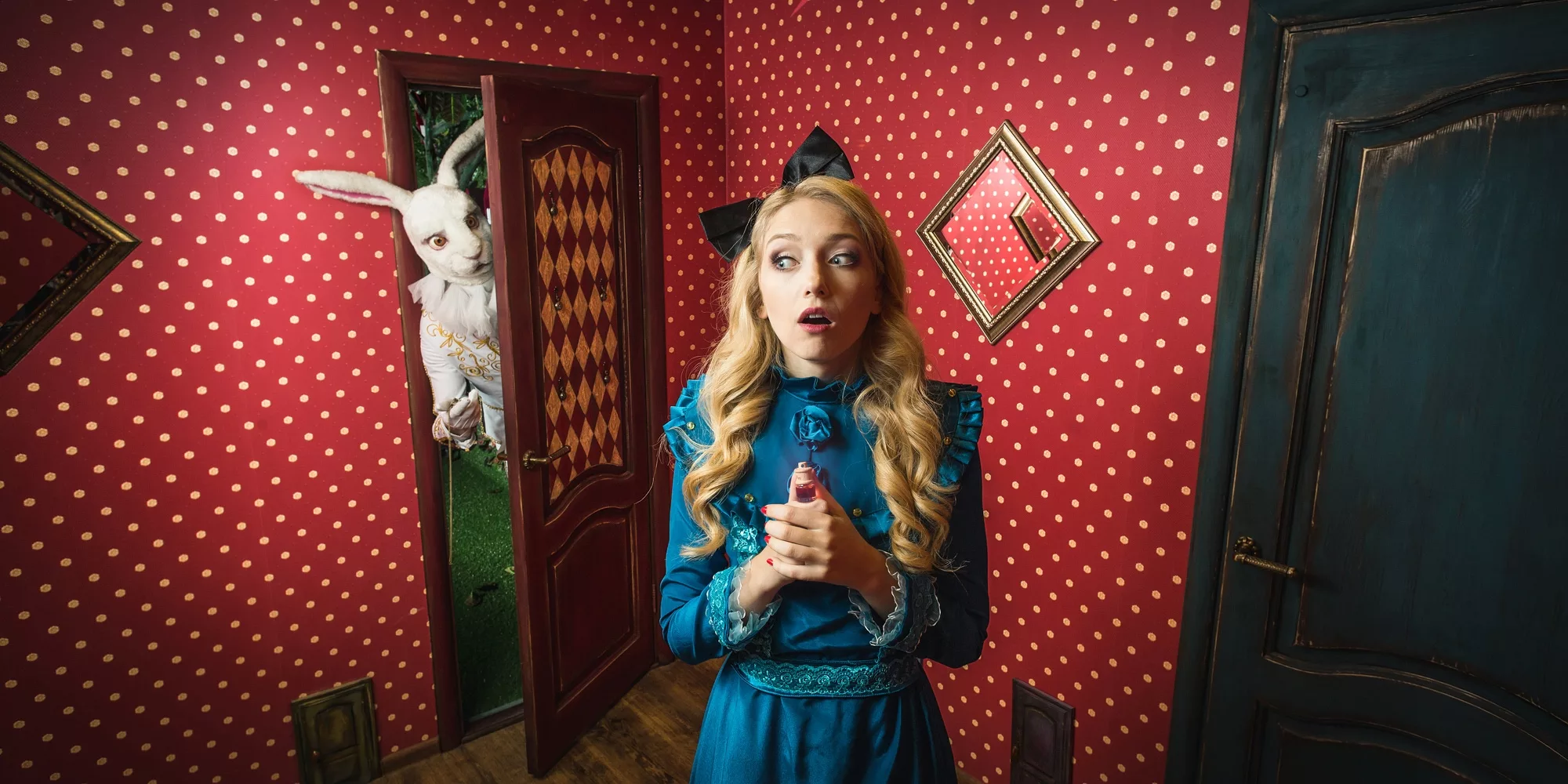
Looking for a fun and challenging activity to do in Amsterdam? Look no further than the city’s top-rated escape rooms! Escape rooms are immersive puzzle games where participants work together to solve a series of clues and challenges in order to escape a themed room before time runs out.
Amsterdam has a wide variety of escape rooms, each with its own unique theme and storyline. In this post, we’ll highlight some of the best escape rooms in Amsterdam, along with tips for making the most of your experience.
1. My Escape Club Amsterdam
Located in the heart of the city, The Escape Club Amsterdam is a must-visit for escape room enthusiasts. With six different rooms to choose from, each with its own unique theme and challenges, there’s something for everyone here. Whether you’re looking to solve a mystery, escape from a haunted house, or break out of a high-security prison, The Escape Room Amsterdam has got you covered.
Webpage: https://myescape.club/
2. Sherlocked
If you’re looking for a truly immersive experience, look no further than Sherlocked. This escape room company has two different locations in Amsterdam, each with its own unique theme and storyline. Whether you choose to explore the mysterious vaults beneath the city or unravel the secrets of an abandoned laboratory, you’ll be fully immersed in the world of the game from start to finish.
Webpage: https://sherlocked.nl/
3. Logic Locks
Logic Locks is another top-rated escape room company in Amsterdam, with multiple locations across the city. Their rooms are known for being challenging, with complex puzzles and hidden clues that will put your problem-solving skills to the test. Whether you’re a seasoned escape room pro or a first-timer, Logic Locks has a room that will challenge and delight you.
Webpage: https://www.logiclocks.com/
4. Escape World Amsterdam
Escape World Amsterdam is a great choice for families or groups with varying levels of experience. They offer a range of different rooms, from beginner-friendly to expert-level, so everyone can find a challenge that’s right for them. Their rooms are also known for being highly immersive, with detailed sets and props that will transport you to another world.
Webpage: https://escapeworld.nl/
5. Quest Matica Amsterdam Escape room
If you’re looking for an adrenaline rush, Claustrophobia is the escape room for you. Their rooms are designed to be intense and challenging, with a focus on horror and suspense. If you’re brave enough to take on their rooms, you’ll be rewarded with a thrilling and unforgettable experience.
Webpage: https://questomatica.nl/
In order to make the most of your escape room experience, be sure to arrive on time and follow the instructions given by the staff.
Listen carefully to the rules of the game and work together with your team to solve the puzzles and escape the room. And don’t be afraid to ask for hints or clues if you get stuck – the staff are there to help you have a fun and challenging experience.
So what are you waiting for? Book your escape room adventure in Amsterdam today and prepare for an unforgettable experience!
Entertainment
When is Amsterdam Tulip Festival in 2023?
Published
3 years agoon
04/04/2023By
Berry Fox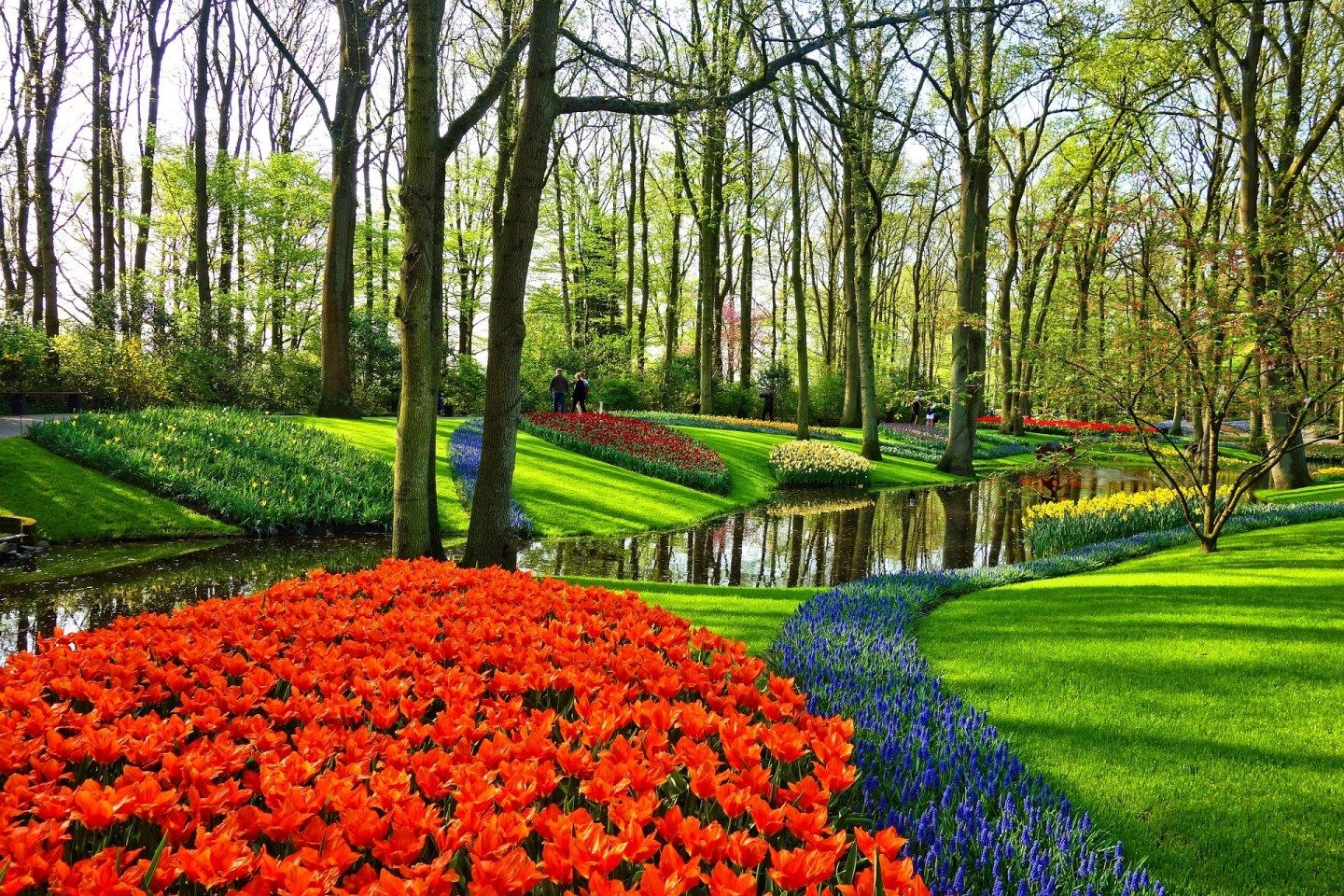
When is Amsterdam Tulip Festival in 2023? The Amsterdam Tulip Festival is an annual event that takes place in the city of Amsterdam, Netherlands during the spring season. The festival usually runs from late March to early May and celebrates the blooming of tulips in the city’s many parks and gardens.
During the festival, visitors can enjoy a wide range of activities including tulip-themed exhibitions, concerts, and guided tours of the city’s tulip fields. The Keukenhof Gardens, located just outside of Amsterdam, is one of the most popular destinations during the festival, with over seven million tulips on display.
In addition to the Keukenhof, other notable locations for tulip viewing in Amsterdam include the Vondelpark, Amsterdamse Bos, and the Hortus Botanicus. Visitors can also take part in the Tulip Festival Bike Tour, which takes cyclists on a scenic route through the city’s most beautiful tulip fields.
Overall, the Amsterdam Tulip Festival is a great opportunity to experience the beauty of springtime in the Netherlands and to enjoy the stunning displays of tulips that the country is famous for.
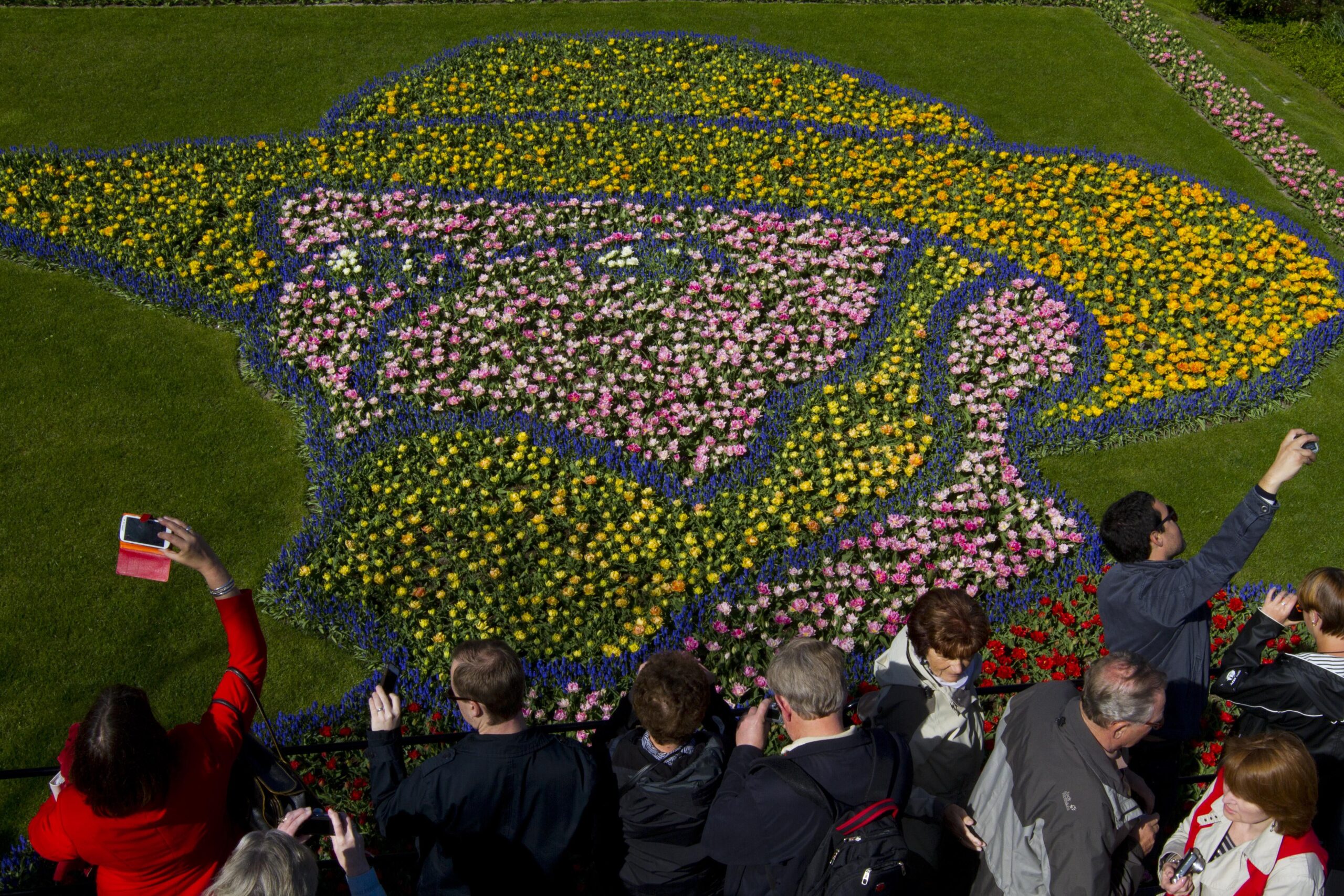
When is Amsterdam Tulip Festival in 2023?
Tulip Festival starts on Thursday 23 March 2023 till Sunday 14 May 2023.
Website: https://keukenhof.nl/
Location: Stationsweg 166A, 2161 AM Lisse
Amsterdam Tulip Festival in 2023 Ticket Prices
The ticket prices for Keukenhof Gardens may vary depending on the age of the visitor and the type of ticket purchased.
The standard adult admission price was €19.00, while children aged 4-17 years old could enter for €9.00. Children under the age of 4 were allowed to enter for free.
There were also other ticket options available, such as combination tickets that include transportation and admission to the gardens, as well as guided tours and group tickets.
However, ticket prices and options may change from year to year, so it’s best to check the official Keukenhof Gardens website for the most up-to-date information on ticket prices and options.
Entertainment
Rotterdam announces 2023 King’s Day program
Published
3 years agoon
31/03/2023By
Berry Fox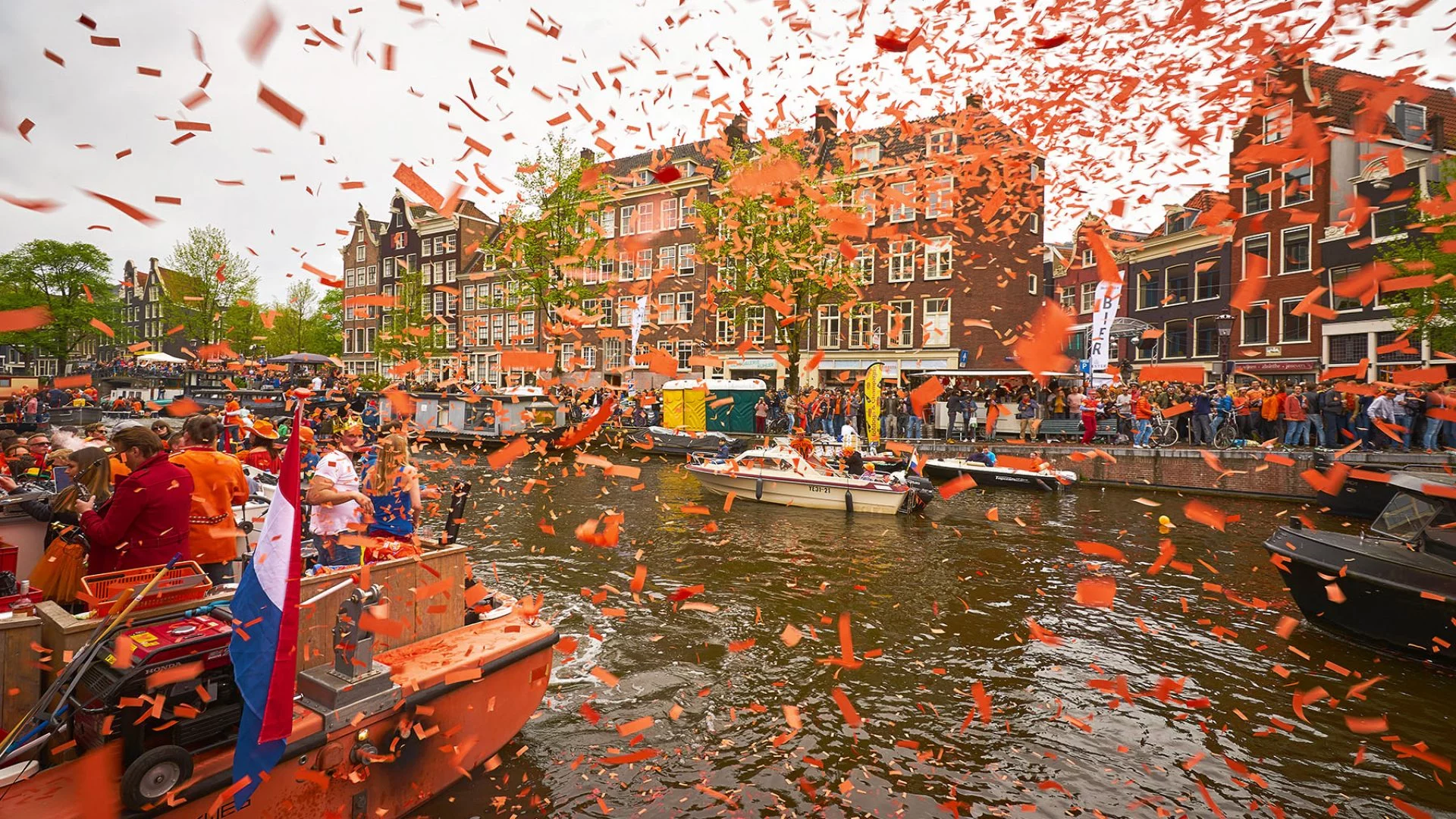
A grand celebration is planned for Rotterdam, King Willem-Alexander, and all who will attend King’s Day in the city.
According to the statement made by the municipality, a “moving show” consisting of dance, circus performances, football shows and a block party will be held on the route where the royal family will walk.
Rotterdam Mayor Ahmed Aboutaleb said: “We have put together a wonderful program for the city, the Royal Family and all those who come to celebrate this day in Rotterdam.” He said and explained the theme of the city celebration as “We are all King and Queen”.
The Royal Family itinerary will begin at 11:00 am at Afrikaanderplein. The royal family will be greeted with the song “Lang zal hij leven”, which will be sung by a choir made up of members of various Rotterdam choirs. Mayor Aboutaleb, Royal Commissioner Jaap Smit and Children’s Mayor Louey Zerourou will welcome the royals along with 50 children from five schools in the neighborhood. The royal family will also hold a digital meeting with children from Sophia Children’s Hospital. The next step will be a swing show that will take place in Pretorialaan and the program will continue in different parts of the city, quite intensely.
The royal route will consist of a 1-kilometer hike and river crossing. The route will take approximately two hours and will be broadcast live by NOS.
Rotterdam said it wanted to ensure that as many residents as possible could participate in the King’s Day celebrations. Therefore, he organized a ten-day wait and a festive “next day”. The King’s Day Concert marks the start of the city program on April 19.

Top 5 Wedding Photographers in the Netherlands (2026 Guide)

5 intimate wedding venues in the Netherlands

New Year’s Eve in Amsterdam 2025-2026: Best Parties, Fireworks, and Traditions

Amsterdam Christmas Markets 2025: Dates, Locations, and The Ultimate Holiday Guide

NL-Alert: The Netherlands’ Essential Emergency Alert System

Best Outdoor Activities in Amsterdam | Natural and Cultural Wonders

Major disruption in train services between Rotterdam and Den Haag until December

More than 800 film producers and actors in the Netherlands call for sanctions against Israel

Scientists warn: Ultra-processed food is as addictive as cigarettes

The price of a pack of cigarettes in Belgium will be 10 euros

There will also be an increase in the consumption tax on soft drinks in the Netherlands

Wanted murder suspect Bretty Dorder in the Netherlands was caught!

Fighting dog feces: Tracing feces with DNA

Ajax – Feyenoord: 0-4 (MATCH RESULT)

Armed attack in Rotterdam, Netherlands: 3 dead

Home Ownership Rate Declines in European Union Countries

Van Gogh’s stolen painting was found after 3.5 years

Pakistani cricketer who put a bounty on Geert Wilders’ head gets 12 years in prison

Fossil fuel protest in the Netherlands on the second day: 500 activists detained

Ajax-Feyenoord derby canceled due to incidents

Bicycles in Amsterdam: The Art of Commuting

Amsterdam’s Cycling Culture: A Lifestyle to Embrace

Amsterdam’s Bike-Friendly Neighborhoods

The Wheel Revolution: How Amsterdam’s Bicycles Reshaped the Cityscape

How to eat cheap food in Amsterdam?

Arts and Entertainment: Amsterdam Guide 2023

Heartbeat of Amsterdam: Exploring the Iconic Bicycles

How to Rent a Bike in Amsterdam

Billboards of OnlyFans model spark controversy in UK

Dutch Supreme Court: Israeli soldiers cannot be tried in our country

Amsterdam fine for loud car engines and exhausts

Verstappen equals F1 record

Exploring Amsterdam’s Best Laptop-Friendly Cafés for Digital Nomads

How Netherlands Emergency system works?

2 Russian warplanes approaching Dutch airspace intercepted

In another city in the Netherlands, a bacteria warning was issued in drinking water

Warning from TK Maxx in the Netherlands: Electric leakage in the adapters!

Rising rents in the Netherlands led citizens to Belgium

Children’s bicycle helmets are recalled for safety reasons in the Netherlands


